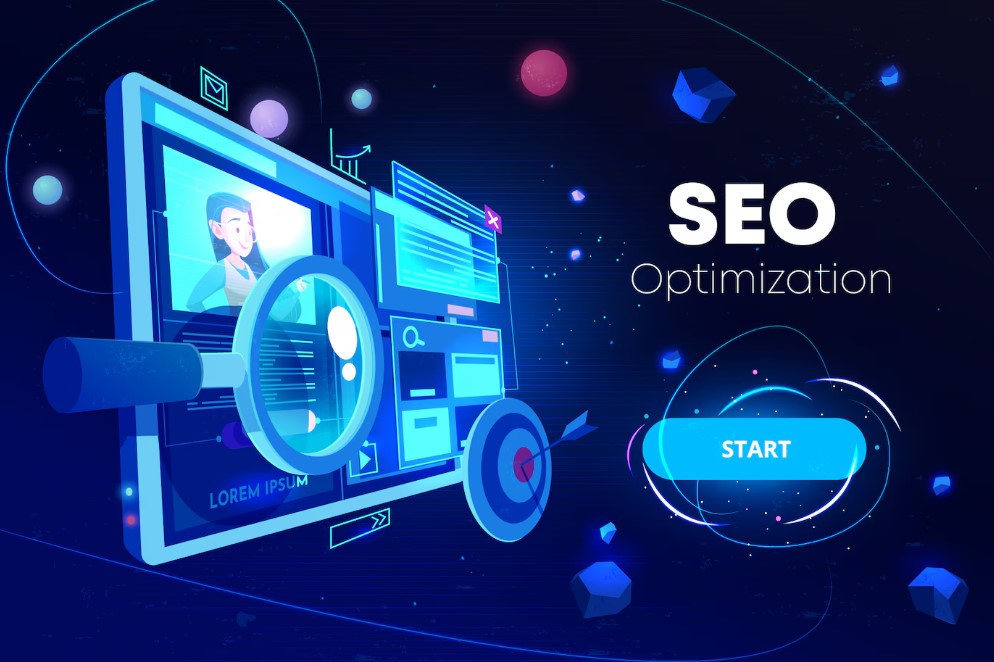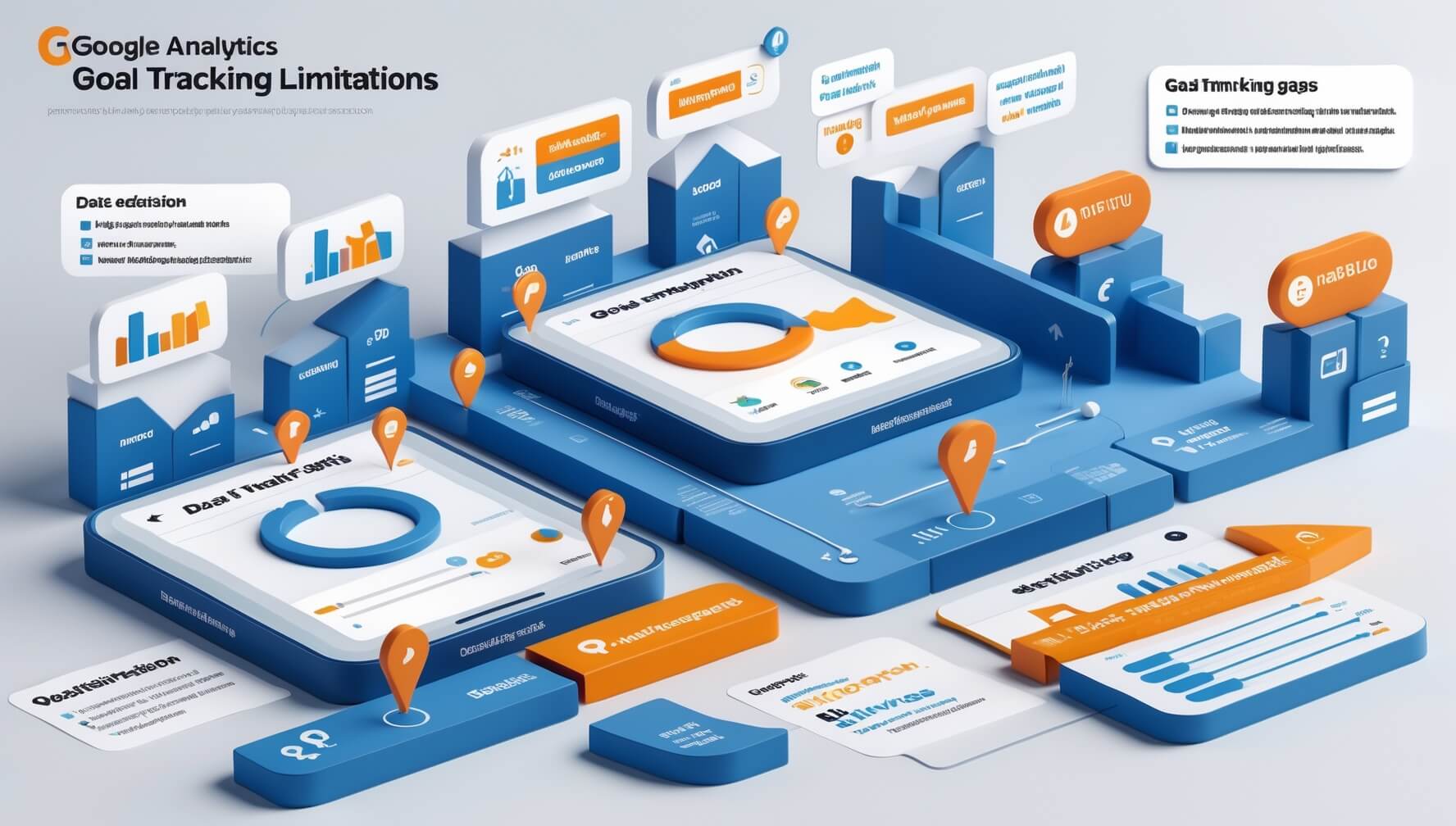In the digital era, a website’s performance and rankings are crucial for success. To stay ahead in the ever-evolving online landscape, you need cutting-edge strategies tailored for advanced technical SEO. This comprehensive guide explores the world of advanced technical SEO and how it can greatly enhance your website’s performance and rankings. With expert insights and strategies, you’ll learn how to navigate the digital landscape with confidence and achieve SEO success.

Table of Contents
Understanding On-Page Optimization
To kickstart your advanced technical SEO journey, it is crucial to understand the fundamentals of on-page optimization. Properly optimizing your website’s on-page elements is key to achieving higher rankings and greater visibility in search engine results pages.
Optimizing Site Structure
Having a well-structured website is foundational to successful on-page optimization. A clear and organized site structure makes it easier for both users and search engine bots to navigate, ensuring a better user experience and improved crawlability. Utilize header tags (H1, H2, H3) to segment content and create a logical hierarchy. Also, make sure your site’s URLs are clean, simple, and descriptive so users and search engines can easily understand the page’s content.
Conducting Thorough Keyword Research
Proper keyword research is a critical step in ensuring your on-page optimization efforts result in higher rankings. Begin by developing a list of relevant and high-volume keywords related to your website and content. Use a tool like Google’s Keyword Planner to identify keywords with high search volume and low competition. Then, incorporate those keywords into your page’s content, titles, meta descriptions, and image tags.
Optimizing Your Content
Optimizing your content is about more than just incorporating keywords. Your content should be valuable, informative, and engaging for users. Write content that naturally incorporates keywords but also follows best practices for readability and structure. Utilize bullet points, short paragraphs, and internal linking to make your content easier to scan.
Making the Most Out of Meta Tags
Meta tags provide additional information about your page to search engines. The title tag and meta description are particularly important for on-page optimization. The title tag should be descriptive and contain your targeted keywords. The meta description should also be relevant, engaging, and include your keywords. Additionally, use schema markup to give search engines more context about your page’s content.
Mastering Off-Page Optimization
To boost your website’s visibility and rankings, mastering off-page optimization is key. Off-page optimization refers to factors outside of your website that impact your search engine rankings. In this section, we will explore essential off-page optimization techniques that include:
- Strategic Link Building: Building high-quality backlinks from authoritative websites in your industry can improve your website’s authority and rankings.
- Harnessing Social Signals: Engaging and building a following on social media channels can increase your website’s visibility and social signals, contributing towards better rankings.
- Establishing Authority in Your Industry: Creating valuable and authoritative content that showcases your expertise can help establish your brand’s authority and improve your website’s rankings.
By taking a holistic approach to off-page optimization, you can significantly improve your website’s search engine rankings and overall visibility in your industry.

Unleashing the Power of Website Speed
Your website speed can make or break your user experience, affecting both your bounce rate and rankings. Studies show that users are less likely to engage with a website if it takes longer than three seconds to load.
Why Website Speed Matters for SEO
Website speed is a crucial part of your website’s performance, and it affects your search engine rankings. Faster-loading websites have a better chance of ranking higher in search results, resulting in increased visibility and traffic. Google has stated that site speed is a ranking factor, and this has been confirmed through numerous experiments.
How to Optimize Website Speed
There are several strategies you can use to optimize your website’s speed:
- Compress images: Large images can slow down your website. Use image compression tools to reduce the size of your images without compromising quality.
- Clean up your code: Your website’s code can significantly impact its speed. Identify and remove any unnecessary code, plugins, or other elements that slow down your site.
- Use a content delivery network (CDN): A CDN can help distribute your website content across multiple servers globally, reducing the load times for users in different regions.
- Minify your CSS and JavaScript: Minifying your website’s CSS and JavaScript files can reduce their size, optimizing your site’s speed.
The Benefits of Fast Website Speed
Optimizing your website’s speed can bring a host of benefits, including:
- Improved user experience and engagement
- Higher search engine rankings and visibility
- Reduced bounce rate and increased conversion rates

Embracing Mobile Optimization for SEO Success
With the rise of mobile devices, mobile optimization is essential for achieving SEO success. Responsive design is a cutting-edge technique that ensures your site looks great and functions well on any device. By making your site mobile-friendly, you provide a seamless user experience and maximize the potential to convert visitors into customers.
In addition to creating a mobile-friendly experience, optimizing your site for mobile-first indexing is crucial. This means that Google primarily uses the mobile version of your content for indexing and ranking purposes. By prioritizing mobile optimization, you effectively improve your visibility and ranking in search results.
The Importance of Responsive Design
Responsive design is the cornerstone of effective mobile optimization. It ensures that your website adapts seamlessly to any screen size, providing excellent user experience across desktop and mobile devices. As more and more users utilize their mobile devices for browsing, a responsive design is no longer an option but a necessity.
By incorporating responsive design into your website, you can significantly reduce bounce rate and improve the overall user experience. This results in increased engagement, conversions, and ultimately, higher rankings in search results.
Optimizing for Mobile-First Indexing
Optimizing for mobile-first indexing is an essential aspect of mobile optimization. It involves ensuring that your mobile site has relevant and valuable content, structured in a mobile-friendly format. This can include using the latest mobile technologies such as Accelerated Mobile Pages (AMP) or implementing structured data to provide Google with in-depth information about your site’s content.
By optimizing for mobile-first indexing, you effectively ensure that your site is indexed and ranked effectively, maximizing its visibility and SEO potential. This means that your customers are more likely to find you when navigating search results on their mobile devices.
Elevating User Experience for SEO Impact
As an informed website owner, it is imperative to recognize the vital role user experience plays in your site’s performance and overall SEO impact. The website’s layout, font size, and color palette are only a few components that make up the user experience. By ensuring your site is user-friendly, you are not only enhancing visitor engagement and promoting longevity but also reducing the bounce rate and increasing the dwell time. Website navigation plays a key role in overall user experience, allowing visitors to access relevant content seamlessly. The navigation should be intuitive and user-centric, guiding visitors to their desired destination with ease.
| Important Metrics | What They Mean |
|---|---|
| Bounce Rate | Percentage of visitors who navigate away from a site after viewing only one page. A high bounce rate indicates poor user experience. |
| Dwell Time | The amount of time a user spends on a site before exiting. Longer dwell times indicate higher user engagement. |
Engaging written content paired with visually stunning graphics and optimized images increases user experience and provides a cohesive experience for visitors. Including video content also provides added engagement as it requires low cognitive loading. Reducing page load times also improves user experience, ensuring your audience remains engaged throughout their browsing experience. Effective call-to-actions (CTAs) provide a way for users to interact with your site and signal the intention of the visitor, subsequently impacting engagement. By focusing on user experience, your website can rank higher on search engines and provide a better overall experience for your audience.
Harnessing the Power of Advanced Analytics
Advanced analytics are imperative to stay ahead in the fast-paced digital landscape. By analyzing data-driven insights and tracking key performance indicators (KPIs), you can significantly enhance your SEO strategy and improve your website’s performance.
The Importance of Data-Driven Decision Making
To achieve SEO success, it’s crucial to make data-driven decisions. With advanced analytics, you can track important metrics like bounce rate, conversion rate, and user engagement, providing you with valuable information to make informed decisions and optimize your site accordingly.
Tracking Key Performance Indicators (KPIs)
By tracking KPIs such as organic traffic, click-through rate (CTR), and conversion rate, you can measure your progress and identify areas for improvement. Utilizing KPIs in conjunction with data-driven insights can provide a comprehensive understanding of your website’s performance.
Utilizing Advanced Analytics Tools for SEO Success
There are a plethora of advanced analytics tools available to help you analyze your website’s performance. From Google Analytics to SEMrush, these tools provide valuable insights into your website’s traffic, user behavior, and other important metrics to help you optimize your site and achieve SEO success.
| KPI | Description | Tracking Method |
|---|---|---|
| Organic Traffic | The number of visitors who land on your site from a search engine’s organic results. | Google Analytics |
| Click-Through Rate (CTR) | The percentage of clicks a link receives out of the total number of impressions it receives. | Google Search Console |
| Conversion Rate | The percentage of visitors who complete a desired action (i.e., purchase or download) on your website. | Google Analytics |
By harnessing the power of advanced analytics, you can gain valuable insights that can help you optimize your website’s performance and achieve your SEO goals.
Optimizing Your Website’s Architecture for SEO Excellence
Your website’s architecture is crucial in determining your site’s search engine rankings.
Website architecture refers to the way your site’s pages are organized and linked together. Effective website architecture enables search engines to crawl and understand your site’s structure, aiding in indexing and improving visibility in search results.
Crawlability
Crawlability refers to search engines’ ability to discover and index your site’s pages. To improve crawlability, ensure your site has a clear and logical structure with well-organized categories and pages. Avoid using complex JavaScript or Flash navigation menus, which may be difficult for search engines to crawl and understand.
Indexability
Indexability refers to search engines’ ability to understand the content on your site’s pages. To ensure high indexability, use descriptive and relevant page titles and meta descriptions. Additionally, include headings, subheadings, and keyword-rich content throughout your pages.
XML Sitemap
An XML sitemap is an essential tool for improving your site’s crawlability and indexability. XML sitemaps provide a map of your site’s pages to search engines, ensuring that all of your pages are discovered and indexed. Keep your XML sitemap up-to-date and submit it to search engines regularly for optimal results.
Robots.txt
Robots.txt is a file that instructs search engines which pages and files they should not crawl or index. Be sure to regularly review and update your robots.txt file to ensure it accurately reflects your site’s current structure and pages. Incorrectly configured robots.txt files can prevent search engines from accessing important pages, negatively impacting your site’s SEO.
Leveraging Structured Data for Enhanced Search Visibility
To stand out in the crowded digital landscape and improve your website’s search visibility, leveraging structured data and schema markup are essential strategies you should consider.
The use of structured data helps search engines understand your website content better, thus making it easier for them to interpret and present it in search results in a more engaging way. By implementing schema markup, you can provide valuable data to search engines and enrich your website’s appearance in search results through the use of rich snippets.
Structured data encompasses a variety of markup formats, including JSON, RDFa, and Microdata, which can be applied to different types of content, such as articles, recipes, reviews, and events. You can use structured data to provide information such as product details, ratings, dates, and addresses, allowing search engines to display more informative and relevant results to users.
Moreover, rich snippets, which are enhanced descriptions of web pages displayed in search results, can significantly improve your website’s click-through rate and search visibility. By including structured data in your website’s HTML, you can optimize your content for rich snippets, enabling search engines to include information such as ratings, reviews, and price ranges directly in search results.
Examples of Structured Data and Schema Markup in Action
| Structured Data Type | Example Implementation | Search Result Example |
|---|---|---|
| Article | <script type=”application/ld+json”>{ “@context”: “https://schema.org”, “@type”: “Article”, “headline”: “How to Leverage Structured Data for Enhanced Search Visibility”, “datePublished”: “2022-03-01”, “image”: “https://example.com/article-image.jpg”, “author”: { “@type”: “Person”, “name”: “John Doe” }, “publisher”: { “@type”: “Organization”, “name”: “Example Company”, “logo”: { “@type”: “ImageObject”, “url”: “https://example.com/logo.png” } }, “mainEntityOfPage”: { “@type”: “WebPage”, “@id”: “https://example.com/article” } }</script> | How to Leverage Structured Data for Enhanced Search Visibility – Example Company |
| Product | <div itemscope itemtype=”https://schema.org/Product”> <meta itemprop=”name” content=”Product Name”> <meta itemprop=”brand” content=”Brand Name”> <meta itemprop=”sku” content=”ABC123″> <meta itemprop=”price” content=”19.99″> <meta itemprop=”priceCurrency” content=”USD”> </div> | Product Name – Brand Name – $19.99 |
By implementing structured data and schema markup effectively, you can greatly enhance your website’s search visibility and increase your chances of attracting more clicks and engagement from potential users.
Staying Ahead with Advanced Technical SEO Practices
To succeed in the digital era, it’s essential to stay on top of the latest industry trends and algorithm updates that impact advanced technical SEO practices. By leveraging these insights, you’ll be able to optimize your website for maximum visibility and engagement. Here are some cutting-edge strategies to keep you ahead of the curve:
1. Invest in Artificial Intelligence (AI) and Machine Learning (ML)
With the rise of AI and ML, search engines are becoming more sophisticated in how they rank web pages. By investing in these technologies, you can better understand user intent and deliver tailored, high-quality content that resonates with your audience.
2. Utilize Video Content
In the digital age, video is rapidly becoming the preferred medium for consuming content. By incorporating engaging, informative videos into your website, you can improve engagement and rankings, as search engines increasingly prioritize video content in their algorithms.
3. Leverage Voice Search
Voice search is quickly gaining traction, particularly on mobile devices. By optimizing your content for voice search queries, you can ensure that your website is optimized for maximum visibility and engagement among users who prefer voice searches.
4. Engage with Social Media
Social media platforms are an essential tool for boosting brand awareness and engagement. By creating high-quality content and engaging with users on platforms like Facebook, Twitter, and Instagram, you can boost your authority and improve your website’s rankings.
By embracing these advanced technical SEO practices, you’ll be able to stay ahead of the curve and ensure your website is optimized for maximum visibility, engagement, and success.
Maximizing SEO Potential with Strategic Content Marketing
To maximize your SEO potential, strategic content marketing is essential. This involves creating valuable content that is optimized for specific keywords, building backlinks, and establishing yourself as an authority in your industry.
Keyword optimization involves conducting thorough research to identify the keywords and phrases that your target audience is searching for. By strategically incorporating these keywords into your content, you increase the likelihood of your website appearing in relevant search results. However, it’s important to avoid keyword stuffing, which can actually harm your SEO efforts.
Building backlinks is another crucial aspect of content marketing. By having other reputable websites link back to your content, you establish credibility and authority in your industry. However, it’s important to focus on quality over quantity, as low-quality backlinks can actually have a negative impact on your SEO rankings.
Finally, establishing yourself as an authority in your industry can greatly enhance your SEO efforts. By creating valuable content that showcases your knowledge and expertise, you can attract a loyal audience and increase your online visibility. This involves creating informative blog posts, engaging social media content, and other forms of content that resonate with your audience.
Key Strategies for Strategic Content Marketing
| Strategy | Description |
|---|---|
| Keyword Optimization | Conduct thorough research to identify target keywords and strategically incorporate them into your content. |
| Building Backlinks | Establish credibility and authority in your industry by having reputable websites link back to your content. Focus on quality over quantity. |
| Establishing Authority | Create valuable content that showcases your knowledge and expertise to attract a loyal audience and increase online visibility. |
By incorporating these key strategies into your content marketing efforts, you can greatly enhance your SEO rankings and establish yourself as a leader in your industry.
Conclusion
Congratulations! You have now gained a comprehensive understanding of advanced technical SEO and how it can enhance your website’s performance and rankings. By utilizing expert strategies tailored for the digital era, you can stay ahead of the competition and navigate the ever-evolving online landscape with confidence.
Remember, optimizing your website for SEO is an ongoing process. Stay up-to-date with the latest industry trends and algorithm updates, and continuously fine-tune your strategies to maximize your SEO potential. By implementing strategic content marketing, harnessing the power of advanced analytics, and optimizing your website’s architecture, speed, and mobile-friendliness, you can achieve SEO success and effectively engage your audience.
Thank you for choosing to embark on your advanced technical SEO journey with us. We wish you all the best in your SEO endeavors and encourage you to never stop learning and growing in the exciting world of digital marketing.




